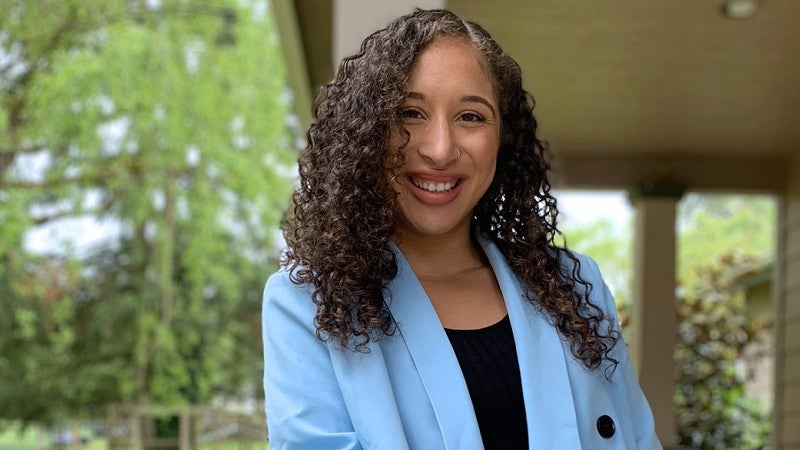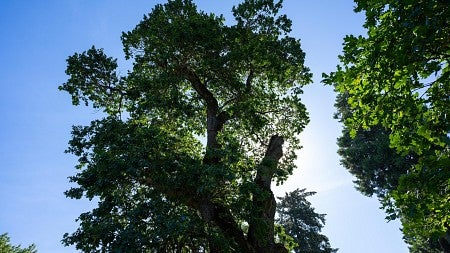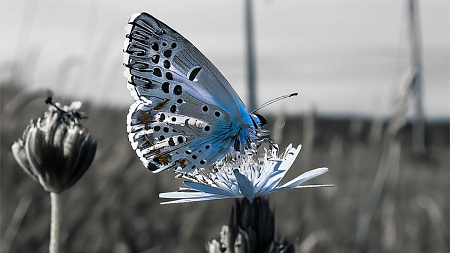
“Everybody needs water,” says Cheyenne Holliday, BS ’18 (psychology), MA ’20 (conflict and dispute resolution). “It’s vital for all ecosystems—including our communities.”
For Oregon Water Futures, a research project led by the University of Oregon and several nonprofits, Holliday is organizing six community gatherings to consult rural indigenous peoples and communities of color about water issues.
Originally planned as in-person events, the forums will happen online because of the pandemic. Ultimately, Holliday hopes these diverse perspectives will influence important decisions about water resources.
“We’re talking about water with people who haven’t been a part of the conversation,” she says.
Climate change, deteriorating infrastructure, and dwindling resources will make that conversation more crucial in the years to come. Rural and low-income communities will be affected most profoundly by the difficult decisions that must be made, according to Oregon Water Futures.
Holliday grew up on her parent’s horse rescue farm in rural Boring, Oregon. At the UO, she competed with the acrobatics and tumbling team. “It taught me so much,” she says. “Interpersonal skills, discipline, and how to show up for work. It prepared me for the next part of my life.”
—Ed Dorsch, BA ’94 (English, sociology), MA ’99 (journalism), is a staff writer for University Communications




